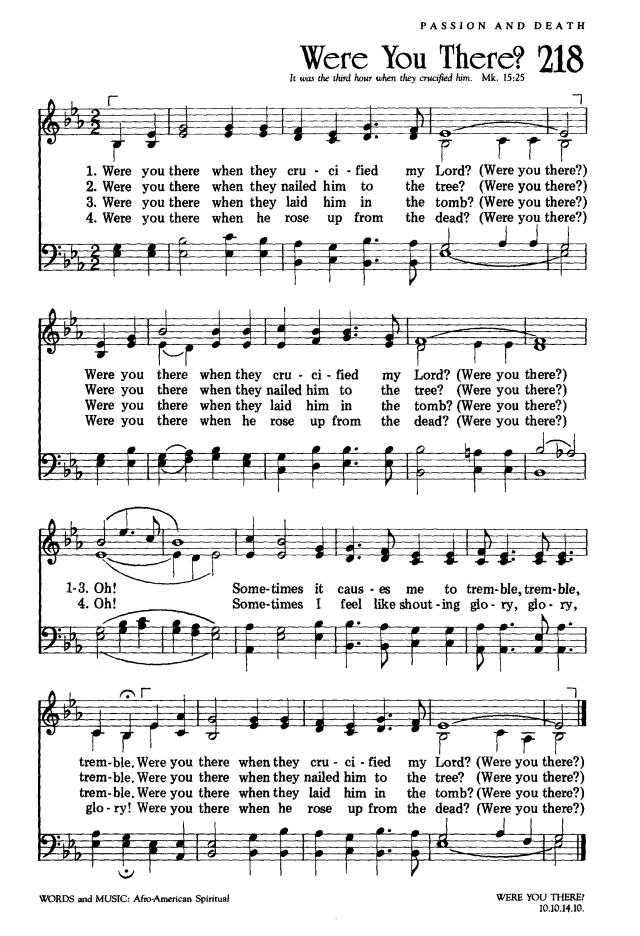The question “Were you there?” probably has two resonances for Christians. It is the title of a famous spiritual. And it is a phrase that Ken Ham encourages people to ask in science classes. One of them is an invitation to bridge the distance between past and present. The other closes that bridge in a way that is fundamentally incompatible with Christianity.
Christianity has at its core claims about the past. For some conservative believers, those claims are arguably excessively numerous, and sometimes called into question by historical evidence and investigation – e.g. that Moses wrote the Pentateuch, that the accounts of Adam and Eve and the Flood were passed down faithfully and represent traditions earlier than the Babylonian parallels which are older than the Book of Genesis in its present form. But for all Christians, there are historical events at the core of our identity: in particular, the life of a historic individual, Jesus of Nazareth.
The classic spiritual invites the Christian to bridge the gulf that separates us from those past events.
Ken Ham’s sarcastic and inane question, on the other hand, closes the bridge. Because if it can be asked of scientists (who generally have very specific and concrete data to work with), it can be asked all the more about matters of history.
The question “Were you there?” that Ken Ham poses is not the question of a Christian. It is the question of a naive critic of Christianity, which might well be posed to equally naive conservative believers, in the manner of the following:
Claim: Jesus died.
Response: How do you know? Were you there?
Follow-up claim: The Gospel authors wrote about it, and they saw it happen.
Response: How do you know? Were you there?
Follow-up claim: Even if they weren’t there, they had oral traditions to work with.
Response: How do you know? Were you there?
And so on ad infinitum, about any claim about the past that is simply asserted. But the naivite of the assertions and the retorts are both ignoring the legitimate processes of reasoning whereby we can use evidence to deduce things about the past.
Ken Ham’s question is fundamentally anti-scientific, but also anti-historical one, and as a result anti-Christian one. While it may appear an appropriately simple retort to simplistic claims about the past of the sort mentioned above, it can be posed in annoying fashion even to those who use the best historical methods and legitimate deductive reasoning with respect to the historical figure of Jesus – the same sort of deductive reasoning with evidence that provides abundant support for evolution in the realm of biology. As a response to deductive reasoning, it reflects a foolish stance of uncomprehending and simplistic criticism, one which denies all possibility of knowing about the past – whether about evolution or about the historical figure of Jesus, not to mention the countless other topics to which deductive reasoning is also applicable and necessary.
And so Ken Ham is teaching an approach to science that leads naturally to rejection of Christianity.
Remind me again why Christians listen to him and take his advice?













